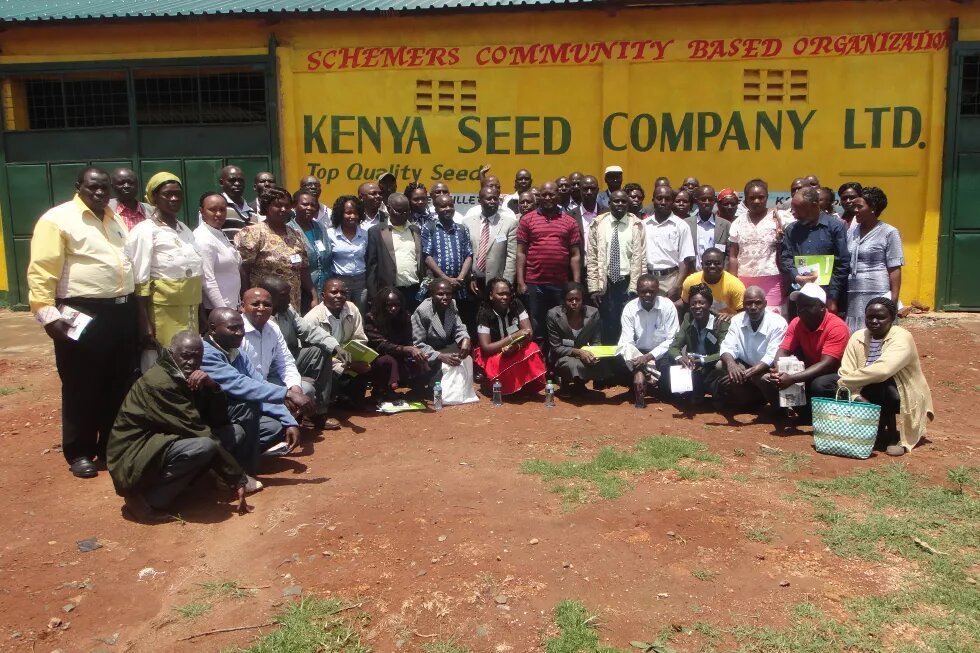
Food Security Laws and Policies Workshop
Agricultural Sector
The mainstay of Kenya's economy is the agricultural sector with direct contribution of 24% of the Gross Domestic Product (GDP), and 27% of GDP indirectly through linkages with manufacturing, distribution and other service related sectors. Approximately 45% of Government revenue is derived from agriculture, and the sector contributes over 75% of industrial raw materials and more than 50% of the export earnings. The sector is the largest employer in the economy, accounting for 60 per cent of the total employment. Over 80% of the population, especially living in rural areas derives their livelihoods mainly from agricultural related activities. Due to these reasons, the Government of Kenya (GoK) has continued to give agriculture a high priority as an important tool for promoting national development.
Notably, Kenya's food insecurity problems are due to several factors, including the effects of climate change lead to frequent droughts in most parts of the country; low technological adoption; low value addition; in-transparent value chain; high costs of domestic food production due to high costs of inputs especially fertilizer etc; displacement of a large number of farmers in the high potential agricultural areas following the post-election violence which occurred in early 2008; high global food prices; and low purchasing power for a large proportion of the population due to high level of poverty.
Laws and Regulations within the Sector
It is noteworthy that the government has over the years linked the under performance of agriculture to out-dated laws and regulations, with the sector currently governed by a total of 131 laws of Kenya. Laws of Kenya are constantly updated through amendments and revisions; for example, Agriculture Act (revised, 1963, 1977, 2001, 2011), Tea Act (amendment, 2011), The Agriculture Produce (Export) Marketing Act (revised, 2006) and Agriculture Produce Marketing Act (amendment, 1971). Pig Industry Act and the Stock Traders Licensing Act got repealed in 2007, Animal Diseases Act and Prevention of Cruelty to Animals Act (June 2012). To address the fact that food insecurity occurs due to weak government institutions, strategies and legal policy frameworks, Parliament passed two Bills into Law, namely The Crops Act, 2013, and the AFFA++ Acts.
Granted that Agriculture is the principal pillar underpinning Vision 2030, and with increased budgetary allocation that would aim to match the Maputo declaration of at least 10% of the national budget to the agricultural sector, it is expected to contribute the majority of 10% economic growth target per annum, based on creating globally competitive agriculture sector through innovative, commercially-oriented and modern agriculture, livestock and fisheries sectors. There is therefore need to have responsive and coherent institutions, laws and policies to instill confidence among farmers and relevant stakeholder to boost food security in the country.
The following presentations were done during the Workshop held from 14th to 15th August in Eldoret:-
- Agriculture Laws and Policy Responsiveness to Climate Change - Benjamin Kimani.
- Enhancing Farmers Participation in the New Governance Structure in Kenya - Justus Monda
- Gender Inclusiveness in Agriculture - Rosemary Wanjiru
- How the New Agricultural Policy & Legislative Framework Would Impact on Value Chain Actors - Edwin Odeny
- Legislations and food security – how do they influence each other - Booker Owuor
- New Legislation & Agri-Business-Where are the Gaps. - Chris Webo
- Seed Sovereignty Training - Justus Lavi
- Youth in Agriculture - Edwyn Odeny
- Role of national and county governments in formulation and implementation of agricultural sector policies in Kenya - Luka Rotich

